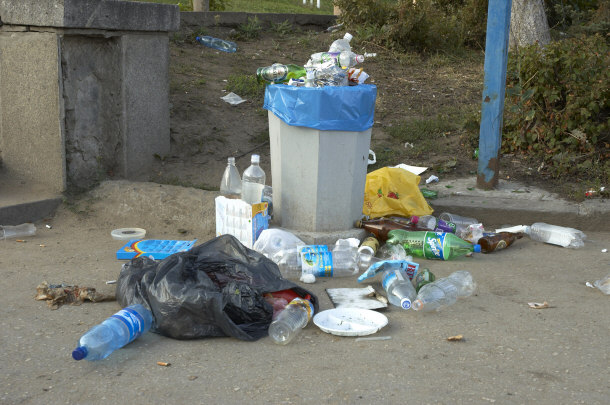Top 20 Common Substances That Are Toxic to Cats and Dogs
 Caring for a cat or dog is a big responsibility. You make sure your pet eats
well, has plenty of fresh water, is up to date on vaccinations and has a safe
environment in which to live. However, there are many common toxic substances in
and around your home that can make your pet very sick and even cause death.
While this is on no way a complete list of common toxins (there are over 700
plants alone that are toxic and even fatal to pets), here are the top 20 common
items both indoors and out that may cause your pet complications. Some of these
may surprise you. Caring for a cat or dog is a big responsibility. You make sure your pet eats
well, has plenty of fresh water, is up to date on vaccinations and has a safe
environment in which to live. However, there are many common toxic substances in
and around your home that can make your pet very sick and even cause death.
While this is on no way a complete list of common toxins (there are over 700
plants alone that are toxic and even fatal to pets), here are the top 20 common
items both indoors and out that may cause your pet complications. Some of these
may surprise you.
20. Chocolate - No surprise here. Most pet owners know that chocolate is bad
for cats and dogs. Consumption of chocolate by your pet can lead to fatal
seizures. Dark and unsweetened chocolate (such as baker’s chocolate) is more
toxic than white or milk chocolate.
19. Detergents/Household Cleansers - Items such as these can cause ulcers in
the mouth, throat and stomach of your cat or dog and can be deadly.
18. Batteries - These are toxic to both dogs and cats. Ingesting a battery can
lead to the development of ulcers in your pet’s mouth, throat and stomach.
 17. Acetaminophen/Ibuprofen - These can cause severe anemia and severe ulcers
as well as liver and kidney failure in your pet. In fact, just one tablet
ingested by a 10 lb cat can be fatal. 17. Acetaminophen/Ibuprofen - These can cause severe anemia and severe ulcers
as well as liver and kidney failure in your pet. In fact, just one tablet
ingested by a 10 lb cat can be fatal.
16. Grapes/Raisins - Even in small amounts, grape juice and raisins can lead
to kidney failure in cats and dogs.
15. Ethylene Glycol - Found in many products such as anti-freeze and motor
oil, the sweet taste is
 often enticing for cats and dogs. However, just a
teaspoon of ethylene glycol is enough to cause kidney failure. often enticing for cats and dogs. However, just a
teaspoon of ethylene glycol is enough to cause kidney failure.
14. Jimson Weed - Also known as the devil’s trumpet, eating this innocent
looking flower can lead to restlessness, drunken walking and respiratory failure
in dogs and cats.
13. Lilies, Poinsettias, Daffodils and Azaleas - These flowers can cause
kidney failure and heart rhythm problems in cats and dogs that may lead to
death.
12. Onions, Garlic, Leeks and Chives - When eaten by your pet, these toxic
items cause a severe upset stomach and anemia.
11. Macadamia (Queensland Nuts) and Walnuts - Very harmful to dogs, these nuts
can cause drowsiness, sluggishness, vomiting and difficulty walking.
 10. Tobacco - Harmful to cats and dogs, the ingestion of nicotine in tobacco
from cigarettes, patches or chewing tobacco causes vomiting, tremors and death. 10. Tobacco - Harmful to cats and dogs, the ingestion of nicotine in tobacco
from cigarettes, patches or chewing tobacco causes vomiting, tremors and death.
9. Bread Dough - Unbaked bread dough can expand in the stomach of your cat or
dog causing the stomach to twist and even cut off blood flow. The yeast
contained within the dough can produce alcohol which causes seizures and
respiratory failure in cats and dogs.
 8. Chewing Gum, Breath Mints and Toothpaste - All of these items contain a
sugar-free sweetener called Xylitol . If ingested by your dog, Xylitol can cause
a dangerous drop in your pet’s blood sugar levels and cause liver failure. 8. Chewing Gum, Breath Mints and Toothpaste - All of these items contain a
sugar-free sweetener called Xylitol . If ingested by your dog, Xylitol can cause
a dangerous drop in your pet’s blood sugar levels and cause liver failure.
7. Coins - Coins, such as pennies, containing zinc are especially hazardous to
both cats and dogs. Ingesting coins containing zinc leads to zinc toxicity which
can cause anemia, liver, heart, and kidney failure. A single penny can be fatal.
6. Milk - Although cats love milk, the fact is that most cats are lactose
intolerant. Giving your cat milk can cause cramping of the stomach as well as
gas and diarrhea.
 5. Fat Trimmings from Meat - Never give these to your dog. Eating these can
lead to Pancreatitis which is an inflammation and swelling of the pancreas.
Symptoms include vomiting, weight loss, loss of appetite and diarrhea. Severe
Pancreatitis can lead to hospitalization of your dog for the treatment of
dehydration and shock. 5. Fat Trimmings from Meat - Never give these to your dog. Eating these can
lead to Pancreatitis which is an inflammation and swelling of the pancreas.
Symptoms include vomiting, weight loss, loss of appetite and diarrhea. Severe
Pancreatitis can lead to hospitalization of your dog for the treatment of
dehydration and shock.
4. Mushrooms - Mushrooms contain toxins that can cause shock and affect
multiples systems in the bodies of cats and dogs and may be fatal in some cases.
3. Caffeine - Harmful to both dogs and cats, consuming caffeine can cause
vomiting, diarrhea, seizures, coma and can be deadly depending upon the amount
consumed.
2. Ice Melt - Although handy for melting ice on stairs, sidewalks and porches,
Ice Melt and similar products contain toxic chemicals. When your pet ventures
outdoors, the crystals in the melt become stuck in his or her paws. When your
dog or cat cleans their paws, the melt is ingested. Ingesting Ice Melt can cause
skin irritation, seizures and can be fatal.
 1. Lawn Fertilizers - This is especially true of brands that are marketed as
“weed and feed”. Lawn fertilizers contain herbicides which are harmful to your
pet. Although more common in dogs who spend time outside and may even eat grass
on occasion, if your cat is an indoor/outdoor cat, do not use these in your
yard. These types of fertilizers have been linked to a higher rate of cancer in
pets. 1. Lawn Fertilizers - This is especially true of brands that are marketed as
“weed and feed”. Lawn fertilizers contain herbicides which are harmful to your
pet. Although more common in dogs who spend time outside and may even eat grass
on occasion, if your cat is an indoor/outdoor cat, do not use these in your
yard. These types of fertilizers have been linked to a higher rate of cancer in
pets.
Preventing Accidental Ingestion of Toxins
Cats and dogs are like small children. Sometimes just looking away for a
second is all the time needed for your pet to snatch toxic food off of your
plate or counter. Although it may not be completely possible to prevent the
accidental ingestion of some items, there are a few things you can and should
do.
- Never feed your pet human food.
- Always make sure any household cleaners
and chemicals are tightly sealed and out of your pet’s reach.
- Wipe up any
spills in your garage or driveway immediately. When possible, try to purchase
pet friendly products. There are many alternative products available for melting
ice and lawn fertilization that will not harm your pet.
- Make sure all of your
trash cans have lids that lock in case the cans are knocked over.

What to Do if Your Pet Ingests a Toxic Substance
-
Call your vet right away. If you know what your pet has eaten, take the
container or plant with you. If your vet is unavailable, take your pet to the
nearest animal hospital. Prompt treatment is critical in poisoning cases.

Final Words
As a pet owner knowing what potential toxins are lurking both in and outside
your home will help to prevent your pet from becoming ill or even dying. Be sure
to keep any dangerous substances away from your pet so the two of you can enjoy
a long and healthy life together.
Pets
Top Lists:
18 Richest Animals in the World
15 Exotic Pets You Could Own Today
Top 20 Common Substances That Are Toxic to Cats and Dogs
Informational:
Animal Actors: Pets in the Film, TV, and Print Industry
Caring for a Yorkshire Terrier: Facts You Should Know
Caring for a Pig as a Pet: The Pot-bellied Pig and the Micro Pig
Difference Between a Cat Person And a Dog Person
Should You Microchip your Cat or Dog?
How to Raise and Care for Pygmy Goats
Caring for Unique Pets: The Leopard Gecko
Use Food-Grade Diatomaceous Earth to Kill Fleas Naturally
Dogs:
Top Lists:
Top 15 Dog Breeds For Home Protection
15 Fascinating Facts About The Mastiff
Informational:
How To Teach Your Dog to Hunt for Truffles
Caring for an English Bulldog: Tips and Basic Info
Cranial Cruciate Ligament (CCL) Tears in Dogs: Treating the Injury
How To Keep Your Dog free of Heartworm Disease
Dog With Separation Anxiety?
Cats:
Top Lists:
Top 6 Qualities in an Awesome Cat
Informational:
How to Control Fighting Felines
How to Get Your Cat to Exercise
Fish:
Fish 101 for the Hobbyist: The Fish’s Body and Senses
Buying a Saltwater Aquarium: What You Need to Know
Graduating to a Saltwater Tank
|